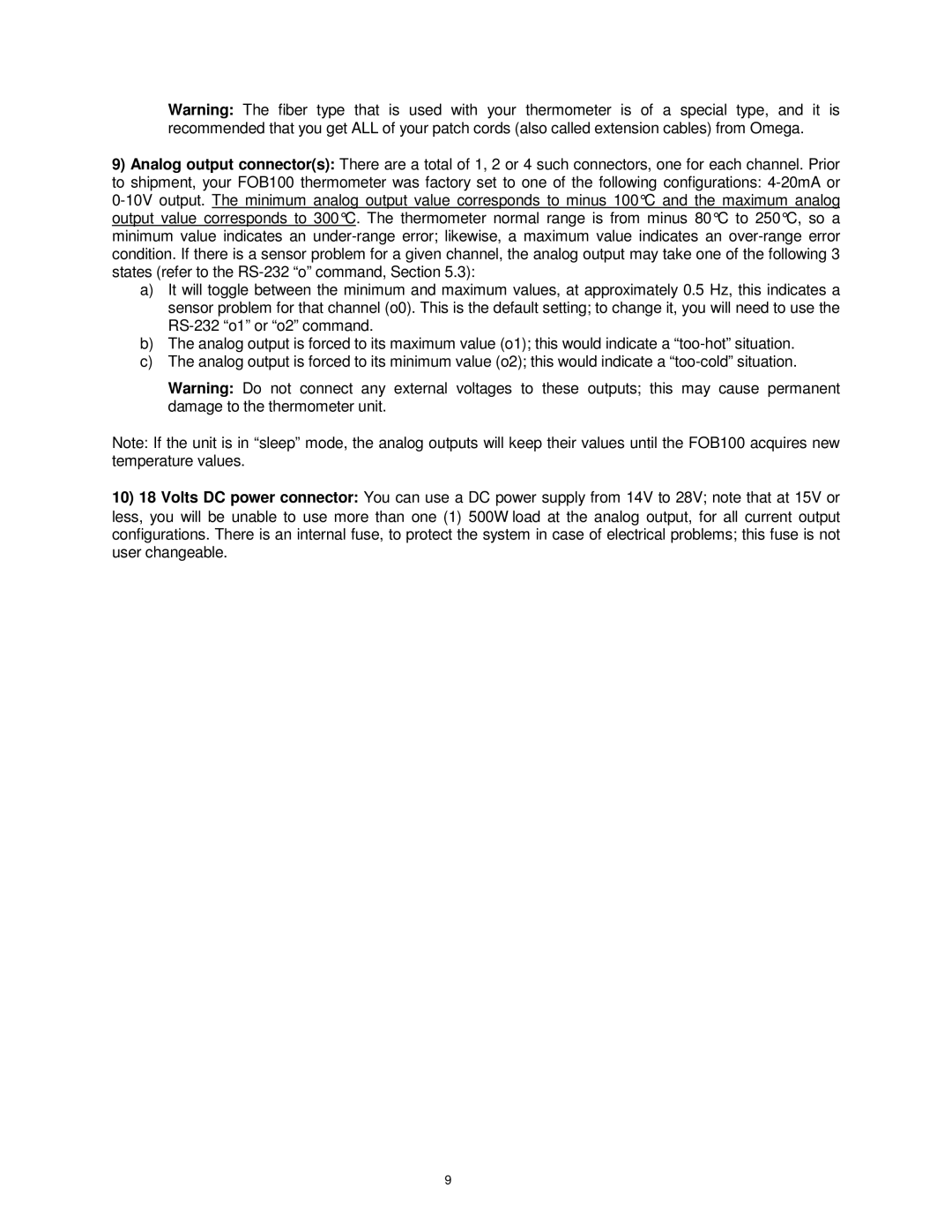Warning: The fiber type that is used with your thermometer is of a special type, and it is recommended that you get ALL of your patch cords (also called extension cables) from Omega.
9)Analog output connector(s): There are a total of 1, 2 or 4 such connectors, one for each channel. Prior to shipment, your FOB100 thermometer was factory set to one of the following configurations:
a)It will toggle between the minimum and maximum values, at approximately 0.5 Hz, this indicates a sensor problem for that channel (o0). This is the default setting; to change it, you will need to use the
b)The analog output is forced to its maximum value (o1); this would indicate a
c)The analog output is forced to its minimum value (o2); this would indicate a
Warning: Do not connect any external voltages to these outputs; this may cause permanent damage to the thermometer unit.
Note: If the unit is in “sleep” mode, the analog outputs will keep their values until the FOB100 acquires new temperature values.
10)18 Volts DC power connector: You can use a DC power supply from 14V to 28V; note that at 15V or less, you will be unable to use more than one (1) 500Ω load at the analog output, for all current output configurations. There is an internal fuse, to protect the system in case of electrical problems; this fuse is not user changeable.
9
